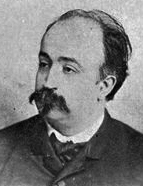

Finally, it is worth noting Laranjo’s role in producing studies of the history of his alma mater, the Faculty of Law at Coimbra. Paulo Merêa (1956) refers to him many times, drawing frequently on his testimony. In particular, regarding the proposals of the commission which, in 1886, discussed the revision of studies in the faculty, he cites Laranjo’s report as firm evidence of the sociologizing evolution of the teaching of law: “It is generally known that the philosophy of Auguste Comte replaced the division of the sciences into divergent and opposed branches with a classification in which phenomena ascend from the most simple to the most complex […]. This conception, which was initiated by Saint-Simon, and which is derived logically from Hegelian philosophy, in itself affirms the solidarity and harmony of all the sciences. […] It is certain that societies have their own natural laws, that a society can be, and today is, the object of a science which Comte called sociology, a designation that was accepted by the consensus of the writers who followed him; and the law, which regulates men’s relationships with one another, whether in matters of freedom or in matters of property, is one of the sciences embraced by sociology, and which has it at its base. It is natural then that its study should start from the ‘general principles of sociology’ […]” (“Ciências Morais e Sociais […]”, 1893, p. 918; Esboço de uma História da Faculdade de Direito de Coimbra […], 1956, III, pp. 7–8).
Works by the author : O Conteúdo e o Critério do Direito, Coimbra, Imprensa da Universidade, 1871; “Origens do Socialismo”, Coimbra, O Instituto, Volume 19, 1874, pp. 201-219; vol. 20, 1875, pp. 57-74; These ex Universo Jure quas in Conimbrigensi Academia Anno MDCCCLXXVII Propugnabat Josephus Fredericus Laranjo, Theses Selectas de Direito, Coimbra, Imprensa da Universidade, 1877; Teoria Geral da Emigração e sua Aplicação a Portugal, t. I - Teoria Geral, Coimbra, Imprensa Literária, 1878; O Banco Emissor, Intervenção na Câmara dos Deputados no dia 10 de Junho de 1887, Lisboa, Imprensa Nacional, 1887; “Ciências Morais e Sociais - A Organização dos Estudos na Faculdade de Direito”, O Instituto, Vol. 40, 1893, pp. 897-919; “Os Operários sem Trabalho e a Evolução Económica”, O Distrito de Portalegre, nº 917, de 12 de Fevereiro de 1902, pp. 1 e 2; “O Projecto de Contrato com o Banco de Portugal”, O Distrito de Portalegre, nºs 1134 a 1141, de 20 de Março a 13 de Abril de 1904, p. 1; Princípios de Direito Político e Direito Constitucional Português, Coimbra, Imprensa da Universidade, 1907; Economistas Portugueses (pref. e notas de Carlos da Fonseca), Lisboa, Guimarães Editores, 1976 (artigos publicados em O Instituto entre 1881 e 1884); Princípios de Economia Política – 1891 (Introd. e dir. de edição de Carlos Bastien), Lisboa, Banco de Portugal, 1997.
